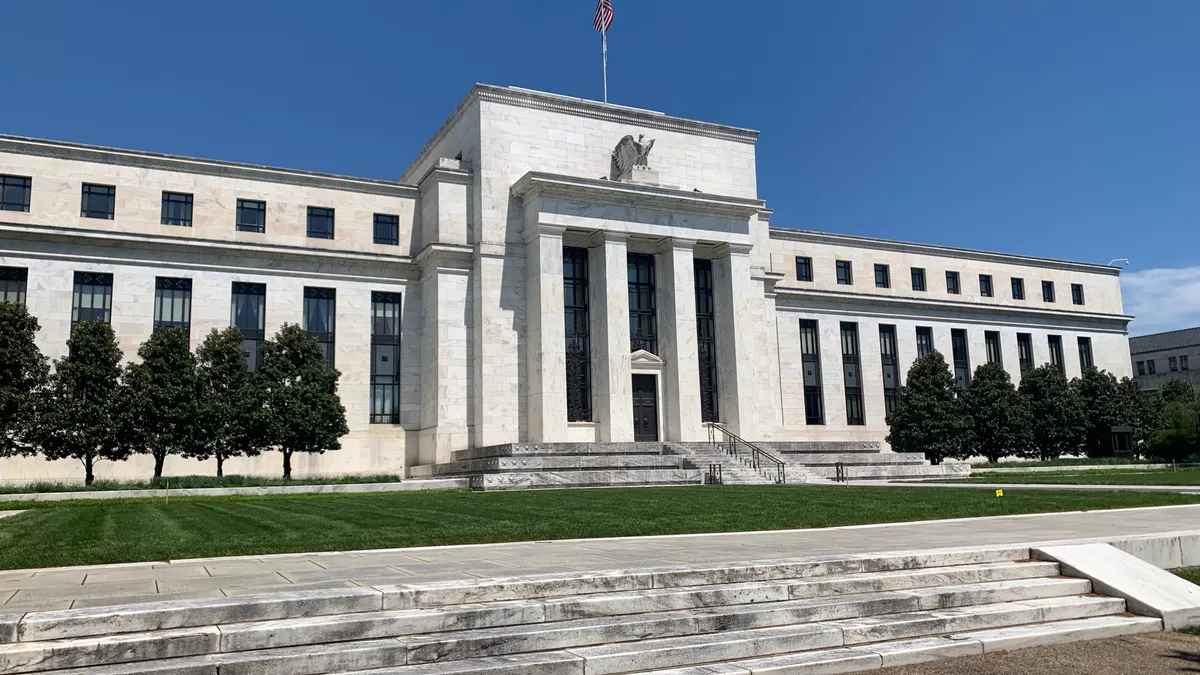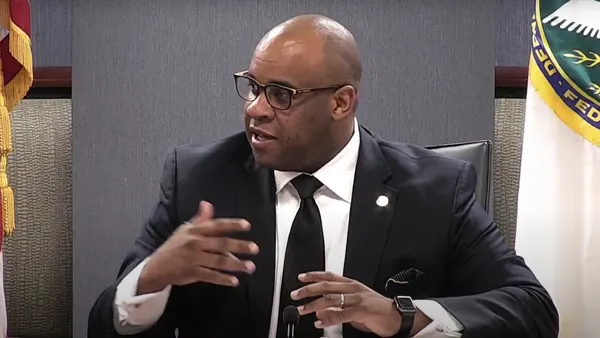Dive Brief:
-
The Federal Reserve is stepping up efforts to evaluate the risk climate change poses to the financial system through the formation of a second climate change risk committee, Fed Gov. Lael Brainard said Tuesday.
-
Brainard announced the creation of the Financial Stability Climate Committee (FSCC), meant to identify and address climate-related risks on a macroprudential level, in a speech at the Ceres 2021 Conference.
-
The committee joins another recently formed panel, the Supervision Climate Committee (SCC), which the central bank announced in January, that explores how climate change affects the individual banks it supervises.
Dive Insight:
The formation of the latest committee follows several steps the Federal Reserve has taken in recent months to address the effects of climate change.
The central bank announced in December it had joined the Network for Greening the Financial System, a group of more than 80 central banks and supervisors that share best practices to manage climate change's financial risks and aim to mobilize mainstream finance toward a sustainable economy.
Last month, Brainard suggested that banks undergo a "scenario analysis" that would allow banks and regulators to assess business model resilience in the midst of extreme weather events.
Brainard, who has been at the forefront of the Fed's climate change efforts, was recently joined by Federal Reserve Bank of San Francisco President Mary Daly in warning that banks should be adapting to climate risk.
"We need to take these climate risks seriously, look at how they're going to change the distribution of economic production, and then make sure that we have mitigation strategies in place," Daly told The Wall Street Journal last month.
Financial market participants that fail to assess and address climate-related risks "could face significant losses on climate-sensitive assets caused by environmental shifts, by a disorderly transition, or both," Brianard said Tuesday. "Conversely, robust risk management; scenario analysis; consistent, comparable disclosures; and forward plans can help ensure the financial system is resilient to climate-related risks and well positioned to support the transition to a sustainable economy."
Separately, Fed Chair Jerome Powell addressed the Fed's stance on climate-related risks Tuesday during a hearing in front of the House Financial Services Committee. He said the central bank is in the early stages of understanding the risks climate change poses to regulated financial institutions.
"It's early days, but we feel like we have the responsibility to start the process of understanding" the risk, Powell said.
At the hearing, Rep. Frank Lucas, R-OK, told Powell his constituents are concerned that financial regulators may be moving toward regulation and supervision with environmental policy objectives, which could “potentially discourage banks from doing business with entire sectors of the economy.”
"It's been a long-held policy of the Fed that we don't tell banks what legal businesses they can lend to or order them to lend to," Powell responded. "That's that's not what we do."
Treasury Secretary Janet Yellen, who attended Tuesday's hearing alongside Powell, told members of the committee addressing climate change is a top priority for the Biden administration, and said regulators should assess the risks to financial institutions through stress testing and other techniques.
"But I have no plans to regulate what lending or investments can be done," she added.
Meanwhile, 60 of the world's largest commercial and investment banks invested over $3.8 trillion in the fossil-fuel industry from 2016 to 2020, according to a report published Wednesday by a group of climate-focused organizations including the Rainforest Action Network and the Sierra Club.
JPMorgan Chase, Citi and Bank of America performed the greatest share of fossil-fuel financing last year, at $51.3 billion, $48.4 billion and $42.1 billion, respectively, according to the report.
















